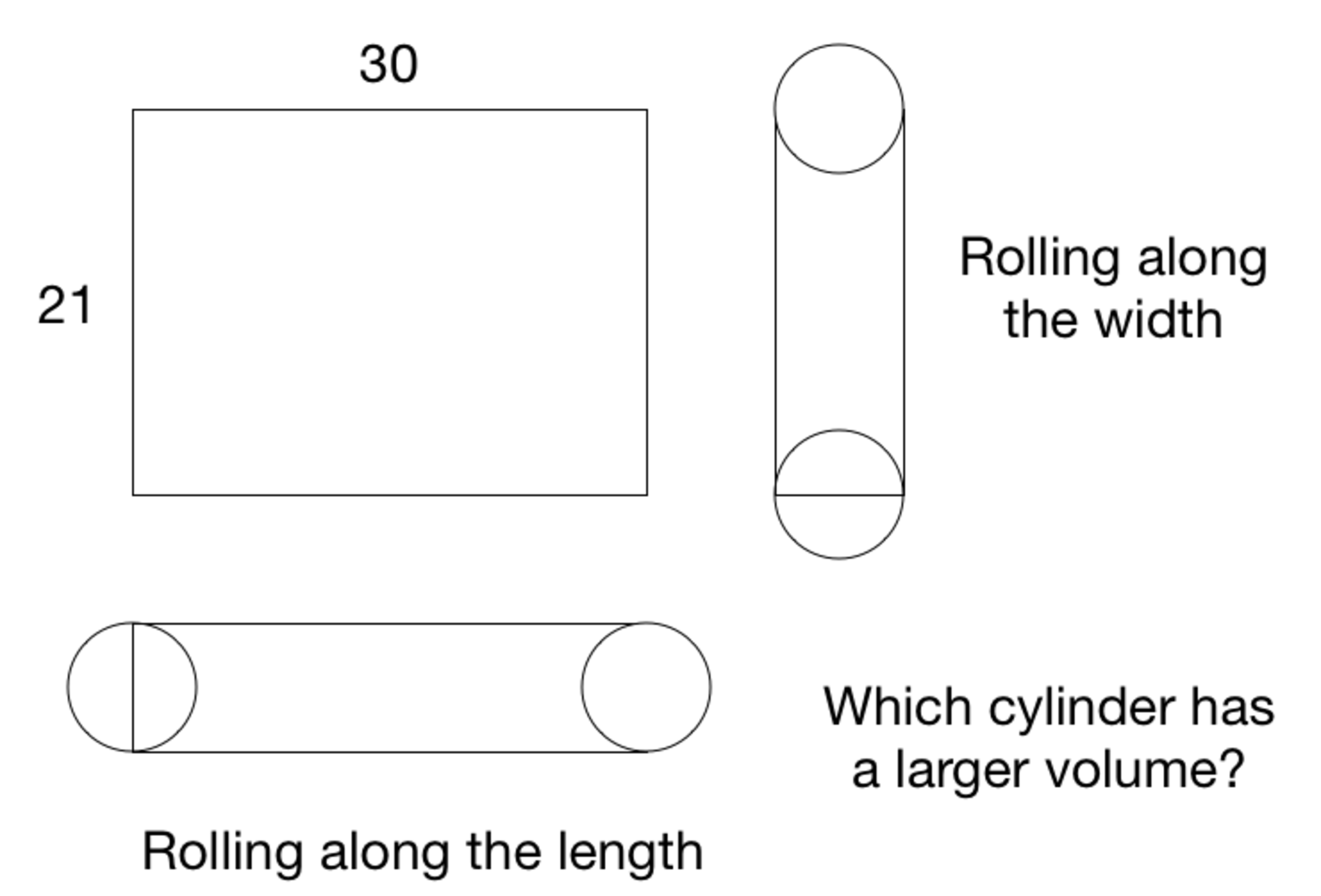Rolled Up Cylinder

Suppose we have a piece of paper that measured 21 by 30, that we wanted to use to form a cylinder.
We can either roll it up along the width, or roll it up along the length, which forms the height of the cylinder.
Which cylinder would have a larger volume?
This section requires Javascript.
You are seeing this because something didn't load right. We suggest you, (a) try
refreshing the page, (b) enabling javascript if it is disabled on your browser and,
finally, (c)
loading the
non-javascript version of this page
. We're sorry about the hassle.
2 solutions
How do you know that?
Log in to reply
Suppose the rolled-up cylinders are like soap bubbles. Suppose we start with the long soap bubble. As it changes to eventually become a nice round sphere, it'll transition to a state more like the correct solution---along the way. Now scale the results so that the surface area is approximately constant.
Of course, basic volume algebra work will show this to be true anyway.
π
(
2
π
2
1
)
2
3
0
=
1
0
5
2
.
8
1
.
.
.
π
(
2
π
3
0
)
2
2
1
=
1
5
0
4
.
0
1
.
.
.
Just pi r^2 h. Substitute the measures of cylinders on this formula.
The one that's closer to a sphere wins.